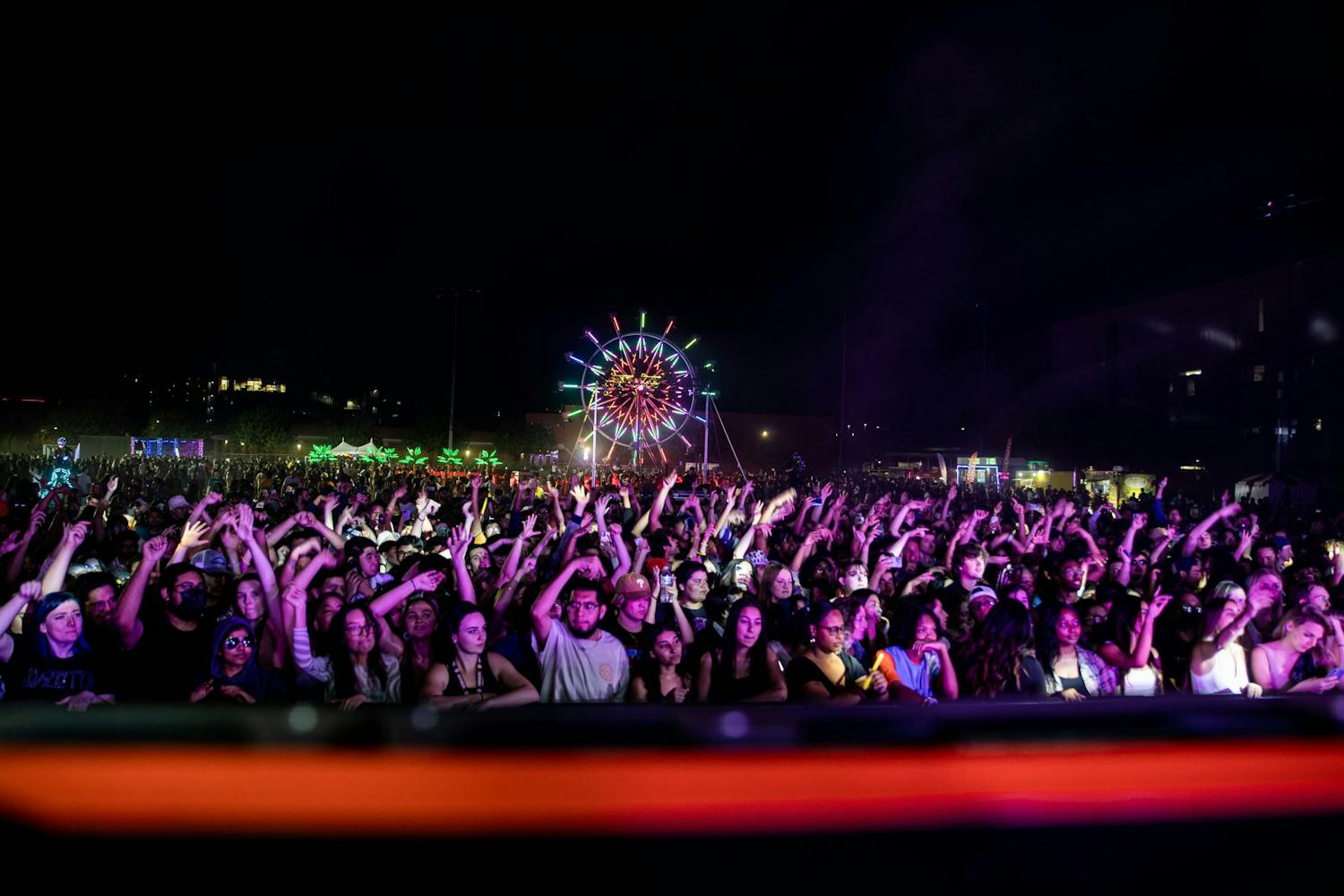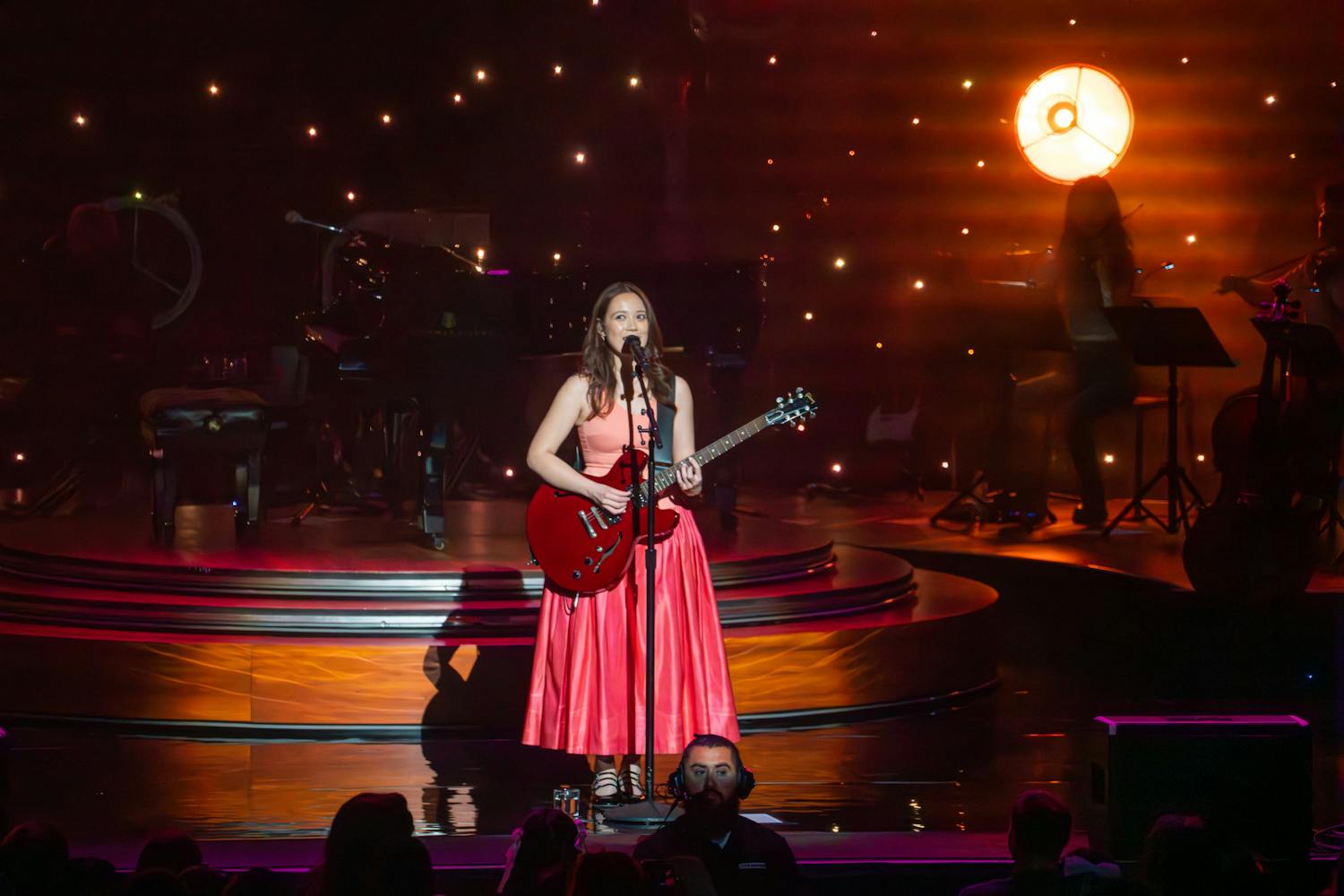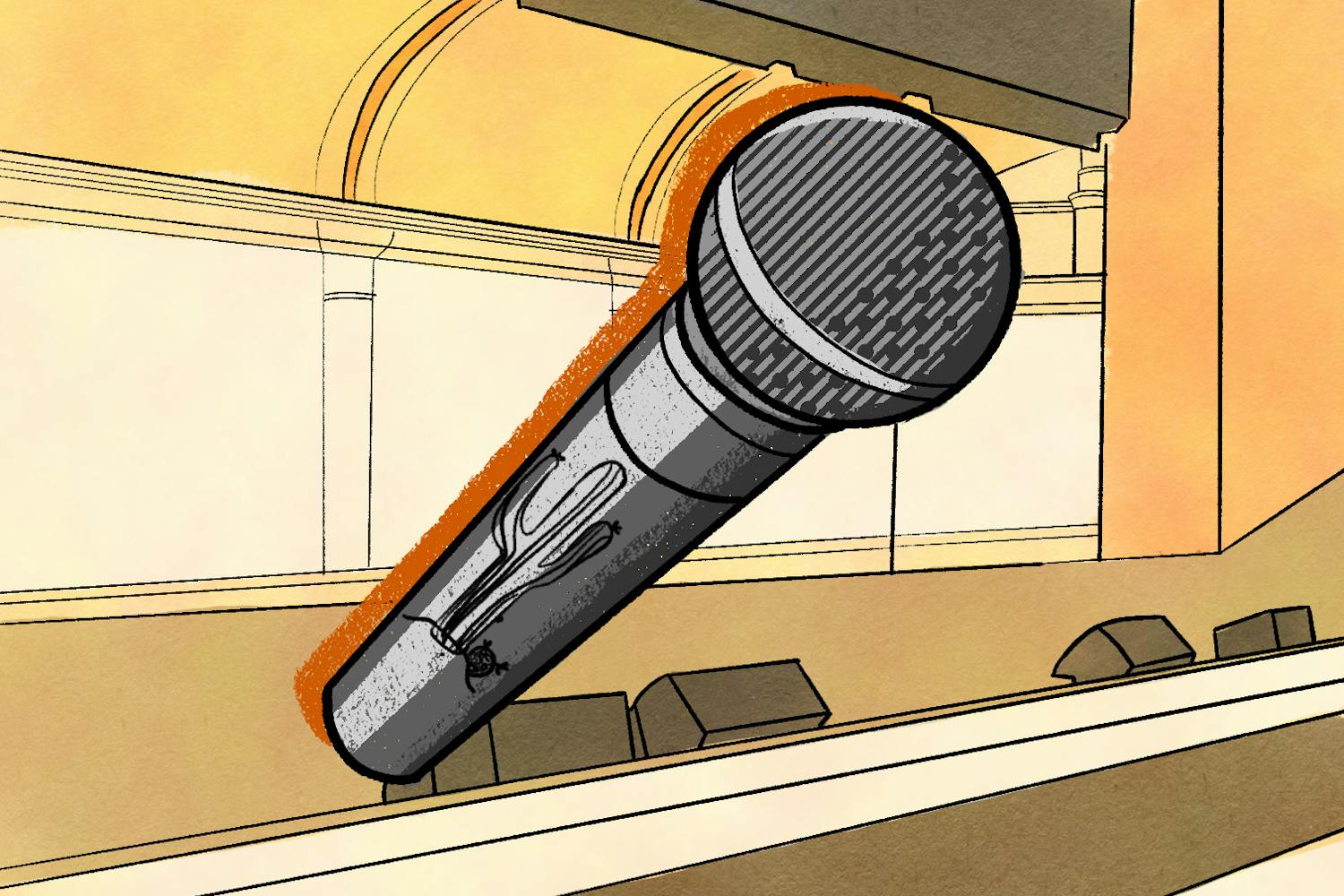“War Horse” performer and Arizona native Mike Heslin studied at the Herberger Institute for Design and the Arts. He graduated from the Boston Conservatory in 2011 and shortly after was cast in the first national tour of the Tony-award winning play during the same year.
The State Press: What’s it like traveling and handling the puppets? What special care is required?
Mike Heslin: Our crew is made up specialists. For example, we have a guy who’s just in charge of all the puppets because they need constant care and maintenance. We have duplicates of each puppet in case anything happens or there are any accidents. They can be replaced literally within a minute and ready to go onstage.
SP: Describe the rehearsal process and puppeteer training.
MH: The rehearsal process was unlike anything I’ve ever done. Dealing with puppets is a little strenuous, so we rotate tracks every night. One night I might be doing horses and the next night I’d be a soldier. For rehearsals we had to start two weeks earlier, and we had that time for puppetry boot camp to learn how to work with them since most of us had never touched a puppet before. It was two weeks of exploration and ensemble building before we had even started rehearsals for the show.
SP: When you were first cast did you have any experience with real horses?
MH: They definitely asked about it, but it wasn’t a deciding factor with the casting. I think it helped during the callback process. I grew up riding horses and volunteered occasionally at a place in Scottsdale. I did have some experience with horses, but it wasn’t extensive. Some of the people in the cast did and others had never touched a horse before. Part of the rehearsal process involved going out to stables in Brooklyn, N.Y., studying and observing horses. We would spend hours watching them and talking to their trainers. Whether or not you had experience beforehand, we got a lot during rehearsals.
SP: It’s one thing for an audience to fall in love with animals in a show, but how do you get them to fall in love with puppets? What do you think makes them so real?
MH: I think it was through all of the work and research in New York. We spent so many hours with live horses and we (the cast) would send each other emails and clips of interesting behaviors. We did so much research and spent so much time studying them. It’s the ultimate reward when audience members who’ve spent their lives growing up with horses say they completely believed every single second. They can’t believe how subtle and intricate the movements and behaviors were. It’s one of the biggest compliments.
SP: What can the audience expect from the play that they wouldn’t have found in the movie, “War Horse”?
MH: I have to be honest and give full disclosure that I have not seen the movie. It came out right before we started rehearsals. I was so in love with the play and had just seen in at the Lincoln Center (on Broadway), so I made the decision to wait until after the tour to watch it. I wanted to be completely open to the world we were creating, and I didn’t want it to affect any of my choices. From what I’ve heard though, the movie sticks a little more to the book. There are some differences in character. I’ve also heard the movie captures the scene and the massive landscape, but we work a little harder on the storyline.
SP: What was your involvement with the Herberger School of Theatre and Film at ASU?
MH: In the acting department, I was in a lot of shows at the Prism Theatre, such as “Autobahn.” I was studying acting and taking some lighting classes.
SP: What types of shows did you see yourself doing when you graduated?
MH: I’m open to everything, but I grew up doing musical theater, and I kind of lead with my voice. It was a bit ironic, yet incredibly fulfilling that my first professional show out of college was a play. It was a little unusual for a Boston Conservatory graduate. But I kind of have a knack for finding interesting projects that aren’t so middle-of-the-road, so this show wasn’t that big of a surprise.
SP: How often do you get to perform onstage?
MH:I understudy 12 characters: all the horses (and) the ensemble soldiers. I’m very blessed to perform several times a week. I went on for our third preview; it was crazy and also incredibly exciting.
SP:How much time do they give you beforehand to let you know what character you’re playing?
MH: Oh my gosh. It varies. People have vacations or personal days, so they let us know a month in advanced which is nice, so I can let friends and family know. However, circumstances occur where generally just before curtain they say, "Mike you’re going on as Joey," or whoever. Recently I had to go on mid-show which was exhilarating. Sometimes three months; sometimes 30 seconds.
SP: What are your plans after the “War Horse” tour?
MH: I like to be busy as possible; I’d like to do another play or commercials or TV films.
SP: Do you have a dream role?
MH: I’d say my dream musical would be Phantom of the Opera. I need to play the Phantom at some point. And dream play? There’s too many good ones. I’d want to do all the classics.
“War Horse” opens at the ASU Gammage on Feb. 5 and runs through Feb. 10. Purchase tickets online at ASUGammage.com.
Reach the reporter at mkthomp5@asu.edu or follow her on twitter at MariaKThompson.



